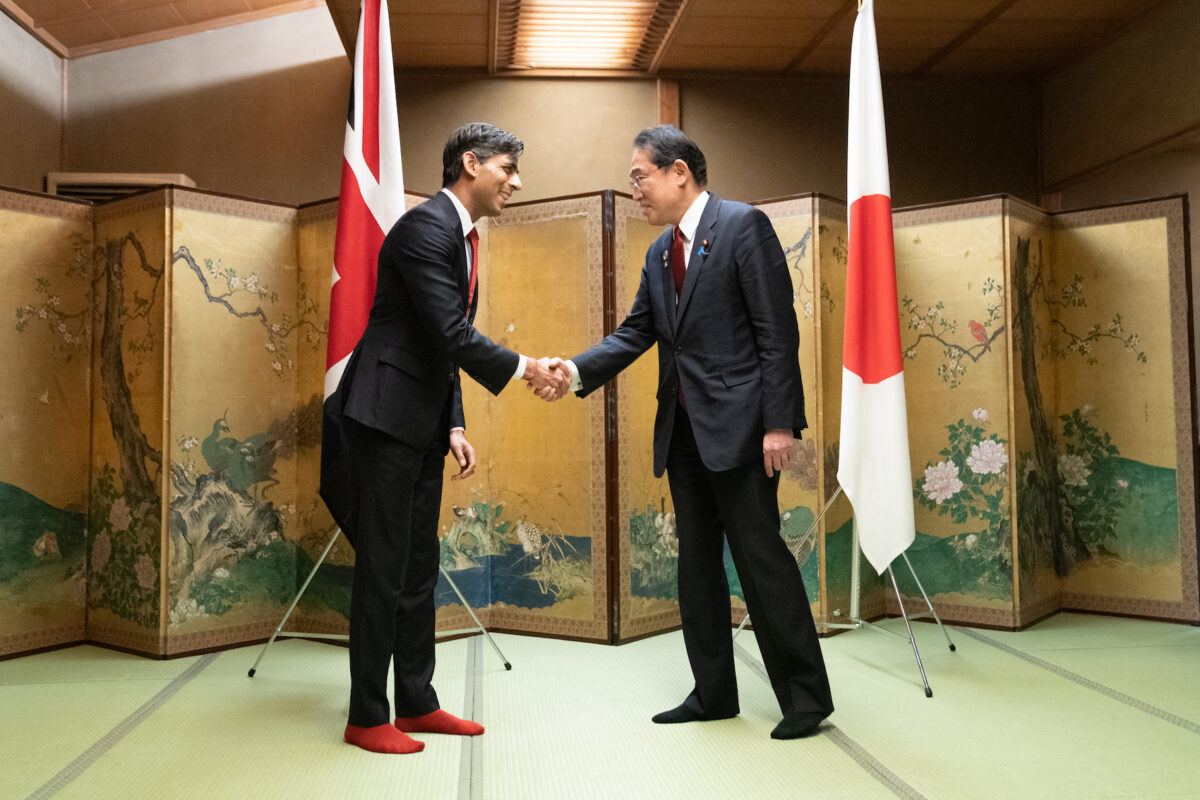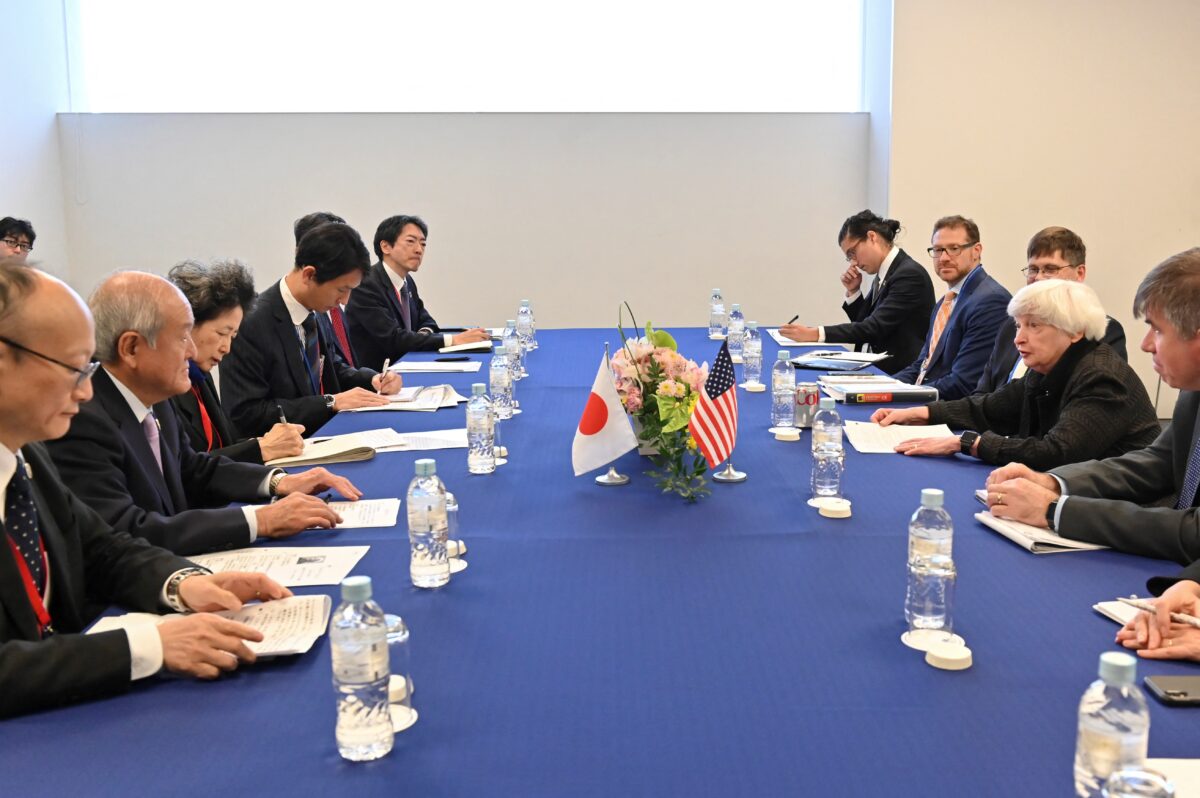The Group of Seven (G-7) finance leaders recently pledged to increase global supply chain diversification, with an expert describing the move as “de-Chinaization”.
The G-7 Finance Ministers’ meeting in Niigata, Japan, ended on May 13, laying the groundwork for the G-7 Leaders’ Summit in Hiroshima from May 19 to 21.
According to a Reuters report, the G-7 leaders are set to discuss concerns about China’s use of “economic coercion” in its dealings abroad as part of their joint statement at the upcoming G-7 Summit, citing an unnamed U.S. official.
The statement will reportedly include “a section specific to China” that lists a range of concerns.
As a central component of the summit’s overall communiqué, the statement also is expected to be accompanied by a broader written proposal on how the seven advanced economies will work together to counter “economic coercion” from any country, the report said.
The G-7 includes the United States, Japan, Germany, the United Kingdom, France, Italy, and Canada. Additionally, the European Union is a non-enumerated member.

The G-7 countries, which account for one-third of the world’s economic activity and one-third of the world’s economic activity, have close economic and trade ties with China.
China is the world’s largest exporter and a key market for many companies from the G-7 nations.
RISE—Resilient and Inclusive Supply-chain Enhancement
At the G-7 Finance Ministers’ Meeting, the countries agreed to launch a new scheme to diversify global supply chains by the end of 2023 “at the latest.”
The scheme, dubbed RISE—Resilient and Inclusive Supply-chain Enhancement—would offer aid to low- and middle-income countries, enabling them to play a more significant role in the supply chain of energy-related products.
The move aims at reducing the countries’ dependence on China in many strategic areas, such as enabling them to refine and process minerals and manufacture parts locally.
“Diversification of supply chains can contribute to safeguarding energy security and help us to maintain macroeconomic stability,” according to a final draft of their communique seen by Reuters.
It stressed that the G-7 would work to ensure that foreign investment in critical infrastructure does not undermine the host countries’ economic sovereignty, the report said.
As the rotating presidency of the G-7 this year, Japan also invited non-G-7 countries, including South Korea, India, and Brazil, to attend the expanded supply chain meeting.

Shi Shan, a China expert and current affairs commentator, spoke to The Epoch Times about what this growing emphasis on supply chain diversification will result in.
“This G-7 meeting is a major change in the structure of the global economy,” Shi said on May 14. “This change sets new rules for the direction of the global economy for at least the next 30 years, and its impact will be significant,” he said.
“This change in the global supply chain is, of course, the de-Chinaization.”
Shi said the discussion surrounding restructuring the global supply chains this time includes developed countries and developing and emerging economies.
“This is going to have a big impact on the next few decades, and China is to stay out of it,” he said.
“The core theme of the G-7 meeting is not to exclude China but to achieve the separation of key technologies and raw materials for major products from China.”
According to Shi, this supply chain restructuring covers two main elements: to reduce China’s monopolization in critical raw materials; to prevent high-tech and precision manufacturing, including mechanical and chemical precision manufacturing, from being placed in China.
“In other words, China can continue participating in the global supply chain, but [under the new G-7 scheme] it can only produce the middle and lower reaches of products, such as low-tech and ordinary consumer goods,” Shi said.
“The latest technologies, such as higher-end semiconductors, will soon be out of China’s reach.”
‘Middle-Income Trap’
Shi said the new G-7 scheme prevents China from transforming its economy and upgrading its industries in the future, creating a “so-called middle-income trap” for the nation.
“At this stage, [China’s] labor force, resources, land, and the market for low-cost commodities have peaked. If its economy wishes to continue to grow, it must upgrade its industries, which means high-tech and precision manufacturing. The G-7’s decision to restructure the industrial chain has essentially blocked this path.”
Shi added that Beijing has learned over the past few years that it can no longer get technology from the United States, so it turned to countries such as Germany, France, and Japan. But now Japan has fully aligned with the U.S., and only France and Germany remain.
“But if the European Union agrees to this overall plan, the CCP (Chinese Communist Party) will now face a big problem.”
From The Epoch Times
